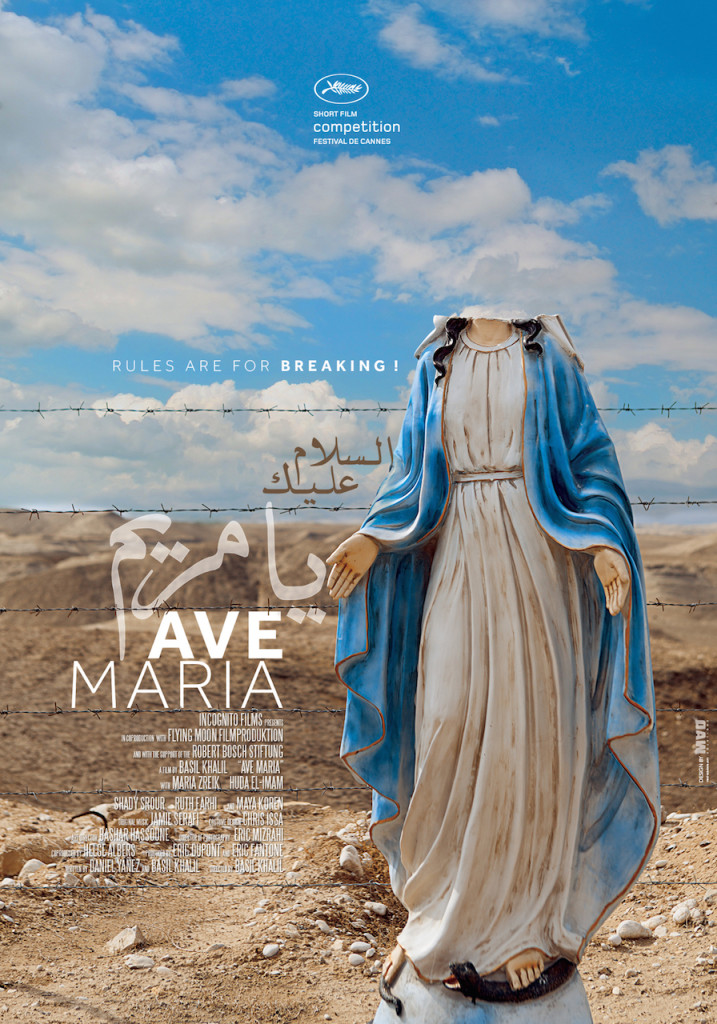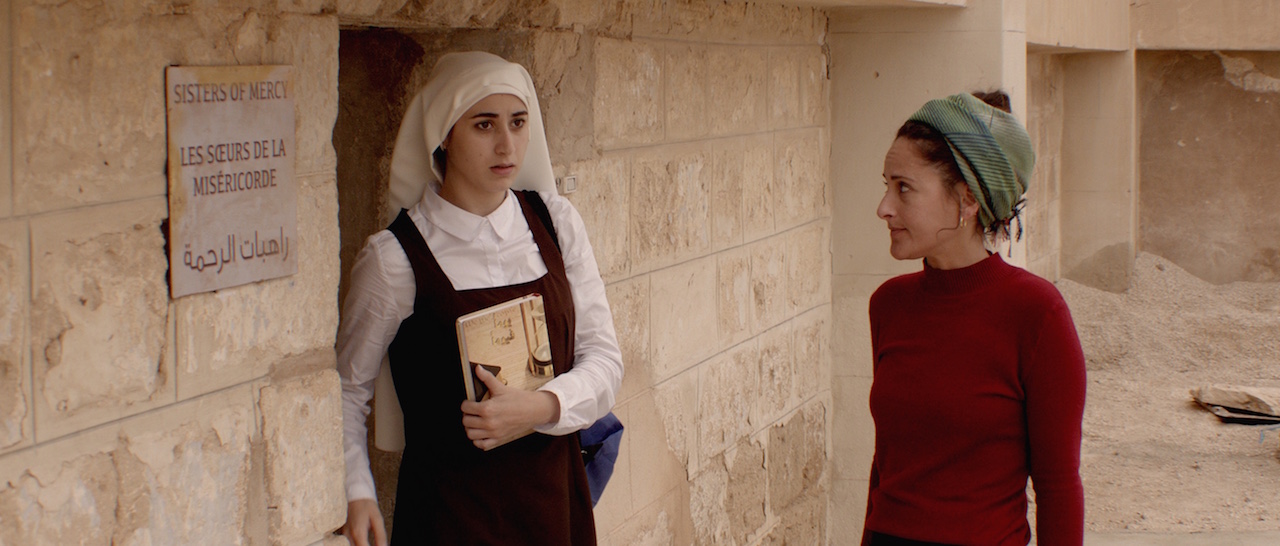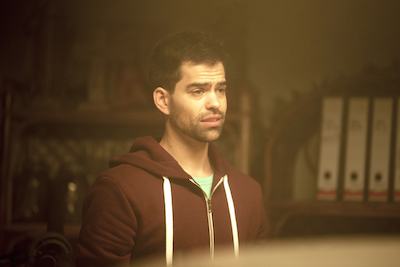Director Basil Khalil
Court Métrage, Festival de Cannes 2015
“Ave Maria” is a short comedy film set in an isolated convent in the middle of the west bank on the eve of the Sabbath. A religious, Jewish settler family breaks down in front of the convent. They need the help of the nuns, but they have taken a vow of silence.”- director, Basil Khalil
GFM:
Ave Maria is very funny and charming, and you bring up cultural and religious differences in a humorous way. Tell us about that approach.
Basil:
I was brought up in the Middle East, where there are constant conflicts and stand offs between these two groups of people. They look the same, the religion is split from the same source, their language is similar, and they’re squabbling over pathetic excuses for control. At the end of the day, they are the same. What’s funny for me, is the laws that push them apart aren’t ‘life-or-death’ situations. That’s the absurdity of it, and that’s what I find quite funny. Whether it’s organised religion or political alliances, there are so many little rules but, they have a lot more to do with ego and power; put them aside and everyone gets along.
GFM:
You spent a lot of time in various countries when you were growing up. How did that inform your story telling?
Basil:
Well, my mum is English/Irish, and my dad is an evangelical Palestinian preacher in Nazareth – so go figure! I was brought up as a Christian in a Muslim majority community in a Jewish controlled country, I was a minority in minority, It gave me a different perspective. From the minute you’re born, you’re expected to take sides. You’re either a Christian, a Jew or a Muslim, and you can’t choose for yourself. Having one foot in each culture, I get to pick and choose. When I choose to tell stories, I can choose to piss off everyone and not care, because I am a bit of everyone. I can also criticise my people on both sides and pick out the faults as well as the interesting stories.
GFM:
In what ways did your work in television prepare you to make a short film?
Basil:
I first started doing short documentaries for the web which had to be done really quickly. This really helped me because I had to shoot, produce, write and edit. I think editing was the biggest tool that helped me on this film. Having the skill to know what to shoot helped me not waste time on set, as well as being able to get the story across. After that there was less money in digital platforms because of less advertising due to the financial crisis.This caused my move to mundane daytime television and reality programmes. It was so un-fulfilling that I had to make this short work out. I had to make it happen or I’d never have a career in cinema.
GFM:
You mentioned previously that you have attended the Cannes festival several times, doing research and preparing for this exact moment. What does it mean to be coming to Cannes with a competition film in 2015?
Basil:
The first year or two I went to Cannes with a documentary that I made. It didn’t really go far but, I sold it for television. I was this very naive person who thought that somebody was going to read my script, love it and finance it. Slowly I got to know the system from the inside, about packaging projects, and financing and producers, who runs what and so on. I got to see how film is a product that is bought and sold in bulk for distributors to present them to paying customers. At the end of the day, the box office is the most important thing. That gave me a grounding notion of what filmmaking really is and if I want to make a living of it.
It’s a very expensive hobby – I want to make a living of it. I do have a feature project in development, and I know that without having a solid short that has done the festival circuit, it would never happen. There are so many people who want to make films out there, so the risk is too big. From Cannes I learned how to present myself, how to have a one pager, and write a synopsis.
Ave Maria is made in quite a mainstream style, so I was quite shocked when it was selected for Cannes this year. It doesn’t seem to me to be as artsy as other films in Cannes. When they told me the verdict I didn’t know how to react. I still think it might be a cruel joke – it hasn’t sunk in quite yet!


